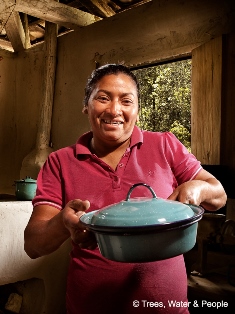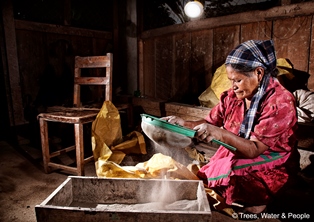
 The countries of the Americas are in the process of defining the next generation of challenges to achieve sustainable development. A recent forum at the OAS—“Building a Post-2015 Sustainable Development Agenda for the Americas”—provided an opportunity to discuss some of the region’s priorities and goals moving forward.
The countries of the Americas are in the process of defining the next generation of challenges to achieve sustainable development. A recent forum at the OAS—“Building a Post-2015 Sustainable Development Agenda for the Americas”—provided an opportunity to discuss some of the region’s priorities and goals moving forward.
The forum, held on October 21, brought together civil society representatives, young leaders, OAS officials, and representatives from the member states for a wide-ranging debate on some of the major challenges the region is facing in terms of sustainable development.
The debate took place as the OAS member countries are working to develop a post-2015 agenda on the subject, which would be approved by the region’s Ministers of Sustainable Development at their meeting next year in Honduras. Based on the priorities and principles that will be laid out that agenda, the countries are updating the Inter-American Program for Sustainable Development, which will guide the work of the OAS Department of Sustainable Development in the coming years.
At the global level, meanwhile, discussions are underway about how to build on the foundations of the United Nations Millennium Development Goals and close some of the gaps that remain between commitments and achievements.
All this provided fertile ground for the discussions at the OAS, which are part of a broader effort to ensure that the voices of civil society are heard in this process. Participants in the meeting raised a wide range of issues, such as the need for good governance for effective implementation of sustainable development initiatives. It is also important, they said, to establish long-term plans for sustainable development that will go beyond rhetoric and produce lasting results despite changes of government.
One issue discussed was the importance of including indigenous peoples in the process of developing a sustainable development agenda. Participants also talked about the need for more opportunities for citizen involvement in large development projects. While governments want to attract major investment, they should create guidelines and mechanisms to give affected communities a voice in negotiations and ensure that the projects will have local benefits, according to participants.
 It is also important, they said, to measure the environmental impact of economic development projects and their potential impact on natural disasters so that people can be aware of possible implications and consequences. Countries in the region also need to reinforce measures to prevent natural disasters, forum participants said, noting that such steps prove to be a good investment. Another issue addressed was the region’s rapid urbanization and its impact on the quality of life in cities.
It is also important, they said, to measure the environmental impact of economic development projects and their potential impact on natural disasters so that people can be aware of possible implications and consequences. Countries in the region also need to reinforce measures to prevent natural disasters, forum participants said, noting that such steps prove to be a good investment. Another issue addressed was the region’s rapid urbanization and its impact on the quality of life in cities.
On education, participants talked about the importance of including environmental education in the basic school curriculum so that younger generations understand how to address these issues. One point of consensus among civil society is that sustainable development still does not occupy the place it deserves in national policy, nor is it a regional priority. Despite obstacles related to countries’ capacity or the funding available, participants concluded, it is critical to increase environmental awareness and strengthen environmental policies in the region.
 View Map
View Map